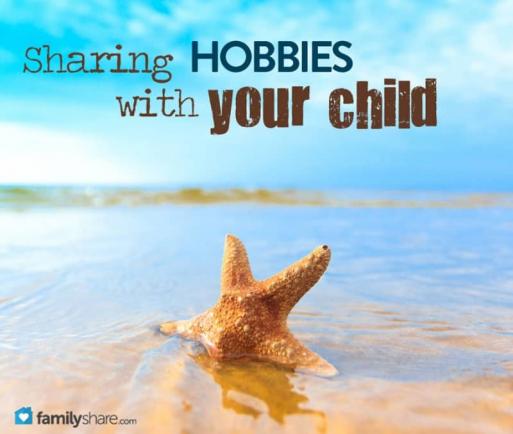
What are you passionate about? Photography? Antique car restoration? Cooking? Cross-country skiing? Why not invite your children to share these hobbies with you to give them a window into your world and a lifelong parent-child connection?
Many of my friends and neighbors are bonded as families through shared activities. These parents continue to feed their passion (after all, we are people as well as parents), and their children have caught on to the family vision. One family does community theater together, another owns a boat and goes waterskiing weekly during the summer months; another attends or watches sporting events together and sprinkles their conversations with sports trivia and inside sporting jokes.
Sharing your passion with your children helps them see what excites you, what you find interesting to talk about, and what is an important part of your past, present and future. It's what makes you - you. The time together is quality time regardless of the quantity.
In Parenting magazine, Dr. Alvin Rosenfeld, a child psychiatrist and author states, "Nothing will bring you together faster than sharing a passion. Your children will feel that they know you more intimately and that they have something that the two of you can share for the rest of your lives."
My husband and I grew up in a small town near the ocean. We go home yearly and often take our children to our favorite beaches to comb for rocks, sea shells and tide pools. Now, if our vacations home don't include a visit to the ocean, the kids are disappointed. You know you've really connected when the children look forward to doing the activity. Dr. Rosenfeld adds: "Any ritual or interest that you can share as a family establishes a sense of identity - of whom you are as a family. And that will stay with your children all their lives."
Sharing our passion not only connects the family, but it helps the child in these critical areas:
-
Enhances self-esteem (they feel more competent)
-
Offers more social opportunities (they gain a new circle of friends)
-
Increases leadership (they can show others how to do it)
-
Activates their imagination (less boredom, more creativity)
-
Greater educational value (learning increases in new domains)
-
They learn important life skills (i.e. self-discipline, hard work and patience)
The Parenting magazine article advises ways to involve our children. "Try talking out loud about what you are doing when pursuing your hobby ('OK, I'm cracking the egg into the batter now, and I'm going to beat it until it turns a light yellow').
Hype your excitement when you get to a favorite part ('I love shining up old silver coins I've collected. They look so cool. Want to help rub?').
Ask his opinion ('Well, that didn't work right, did it? What do you think I should do?'). And don't forget to use kid-friendly language ('Paint remover is like a super magic potion that fixes mistakes')."
Inviting our children into our world can make it a bit more messy and unpredictable. But oh, what glorious fun it can be! Here are three tips for making it successful:
1. Break it down
Make the activities child-sized, using age-appropriate skills and attention span.
2. Make the time
For example, you could schedule every Saturday morning to work together on a model train set or go boating during summer months.
3. Be flexible
You don't have to do it exactly your way. Yes, it will take more time and be more chaotic. But who else would you want your child learning from? Ask your child how they would like to do it from time to time, such as having a child stitch a quilt with the design they like.
If you find a child doesn't share your personal passions, that's OK. Through you, they will still learn to take risks, be open to new ideas and be enthusiastic about learning. You still share a love for life and enhancing skills and interests. When they find what hobbies they want to pursue, you can enthusiastically support them and welcome new conversations that might bring.

